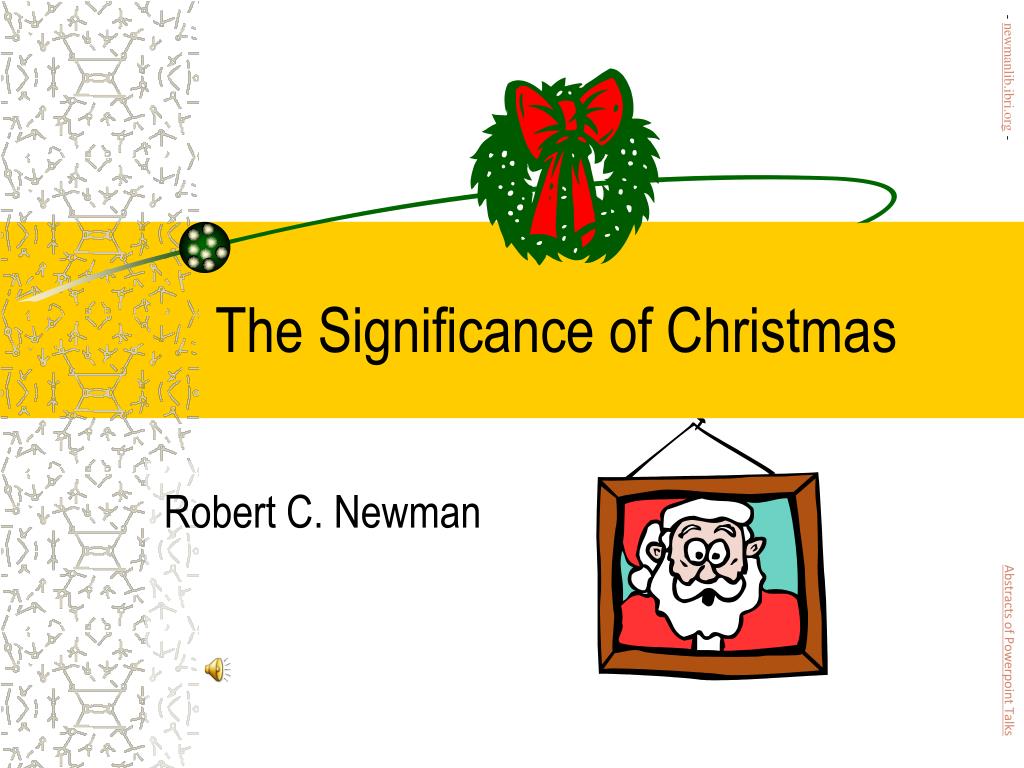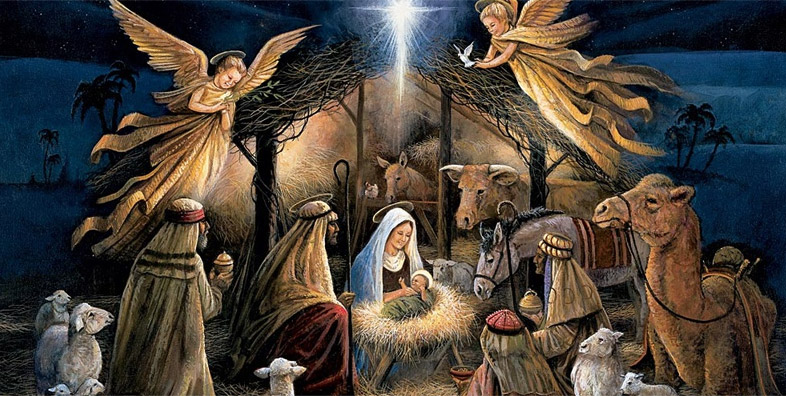The Significance of Christmas Names: A Comprehensive Exploration
Related Articles: The Significance of Christmas Names: A Comprehensive Exploration
Introduction
With enthusiasm, let’s navigate through the intriguing topic related to The Significance of Christmas Names: A Comprehensive Exploration. Let’s weave interesting information and offer fresh perspectives to the readers.
Table of Content
The Significance of Christmas Names: A Comprehensive Exploration

Christmas, a time of joy, celebration, and reflection, is often associated with names that hold deep meaning and historical significance. These names, whether rooted in biblical tradition, folklore, or cultural practice, serve as powerful symbols of the holiday and its enduring values. This exploration delves into the diverse world of Christmas names, examining their origins, evolution, and cultural impact.
Biblical Roots and Traditional Significance:
The most prominent Christmas names are undoubtedly those derived from the Bible. The story of the Nativity, central to Christian tradition, provides a rich tapestry of names that have become synonymous with the holiday.
- Jesus: The name of the central figure of Christianity, Jesus, derives from the Hebrew "Yeshua," meaning "Yahweh saves." This name embodies the core message of Christmas, the birth of a savior who brings hope and redemption.
- Mary: The mother of Jesus, Mary, is a name of Hebrew origin meaning "bitter" or "beloved." In Christian tradition, Mary represents purity, humility, and faith. Her name is often associated with the Virgin Mary, a central figure in Catholic and Orthodox Christianity.
- Joseph: The earthly father of Jesus, Joseph, is a name of Hebrew origin meaning "God will increase." He represents the role of a righteous and devoted father figure in the Nativity story.
- Angel: A celestial being, the angel Gabriel is central to the Christmas story as the messenger who announces the birth of Jesus to Mary. The name "Gabriel" is of Hebrew origin, meaning "God is my strength." Angels are often associated with the divine, representing hope, guidance, and protection.
Beyond these primary figures, the Bible provides a wealth of other names that hold significance during the Christmas season. These include names like Bethlehem, the city of Jesus’ birth, Emmanuel, a name meaning "God with us," and Shepherd, a symbol of guidance and protection.
Folklore and Cultural Traditions:
Christmas names extend beyond biblical origins, drawing inspiration from folklore, cultural traditions, and the spirit of the holiday itself.
- Santa Claus: A figure of immense cultural significance, Santa Claus, also known as Saint Nicholas, is a composite figure based on a 4th-century bishop from Myra, Turkey. His name, derived from the Dutch "Sinterklaas," reflects his association with gift-giving and generosity.
- Rudolph: The iconic reindeer with the red nose, Rudolph, is a creation of Robert L. May, a copywriter for Montgomery Ward. This fictional character, introduced in 1939, embodies the spirit of inclusivity and the power of individuality.
- Frosty the Snowman: A popular character in Christmas folklore, Frosty the Snowman embodies the playful and whimsical nature of the holiday season. His name, a reflection of his icy nature, signifies the joy and wonder of winter.
- Elf: These mythical creatures, associated with Santa Claus and the North Pole, symbolize the magic and wonder of Christmas. The word "elf" derives from Old English, meaning "small supernatural being."
These names, deeply embedded in cultural narratives, represent the spirit of generosity, joy, and magical possibilities that Christmas evokes.
The Evolution of Christmas Names:
Christmas names are not static entities. They evolve with changing cultural contexts, reflecting the evolving perceptions and interpretations of the holiday.
- The Secularization of Christmas Names: The increasing secularization of society has led to the adoption of Christmas names with less religious connotation. Names like "Santa Claus" and "Elf" have gained prominence, while names like "Emmanuel" and "Bethlehem" have become less prevalent in everyday usage.
- The Influence of Popular Culture: Popular culture has significantly influenced the use of Christmas names. Films, books, and music have introduced new names and popularized existing ones, shaping contemporary perceptions of the holiday.
- The Rise of Personalized Names: The increasing emphasis on personalization has led to the creation of unique Christmas names. Individuals and families often create their own traditions and names that hold special meaning for them.
This evolution underscores the dynamic nature of Christmas names, reflecting the ever-changing cultural landscape.
The Importance of Christmas Names:
Christmas names are not mere words; they hold significant cultural and historical weight. They serve as powerful symbols of the holiday, its values, and its enduring legacy.
- Connecting to Tradition: Christmas names provide a tangible link to the rich history and traditions associated with the holiday. They help preserve cultural heritage and connect generations.
- Evoking Emotion: Christmas names evoke powerful emotions, conjuring up memories, feelings, and associations. They create a sense of warmth, joy, and nostalgia.
- Promoting Unity and Belonging: Shared Christmas names foster a sense of community and belonging. They provide a common language and understanding that transcends cultural and religious boundaries.
The importance of Christmas names lies in their ability to connect us to the past, evoke emotions, and foster a sense of shared experience.
FAQs on Christmas Names:
Q1: What are the most popular Christmas names?
A: The most popular Christmas names vary depending on cultural context. However, names like "Santa Claus," "Jesus," "Mary," "Joseph," "Rudolph," and "Elf" are widely recognized and used globally.
Q2: How do Christmas names reflect cultural diversity?
A: Christmas names reflect cultural diversity through their origins and interpretations. For example, "Santa Claus" is a Dutch name, reflecting the influence of Dutch culture on Christmas traditions. Similarly, the name "Emmanuel" holds religious significance in Christianity, while "Rudolph" is a fictional character created in the United States.
Q3: Are there any Christmas names that are considered controversial?
A: While most Christmas names are widely accepted, some may be viewed as controversial depending on cultural context. For example, the use of the name "Santa Claus" may be seen as promoting consumerism by some, while others may find the name "Jesus" offensive or inappropriate in a secular setting.
Q4: How can I use Christmas names in a meaningful way?
A: You can use Christmas names in a meaningful way by incorporating them into your holiday celebrations, decorations, and traditions. You can also use them as a starting point for discussions about the history and significance of the holiday.
Tips for Using Christmas Names:
- Consider the context: Be mindful of the context in which you are using a Christmas name. Consider the audience and the message you wish to convey.
- Respect cultural diversity: Acknowledge the different cultural perspectives associated with Christmas names. Be sensitive to the beliefs and values of others.
- Use names creatively: Explore different ways to use Christmas names, such as in decorations, gifts, or storytelling.
Conclusion:
Christmas names are more than just words; they are powerful symbols that encapsulate the spirit, history, and cultural significance of the holiday. From biblical figures to fictional characters, these names connect us to tradition, evoke emotions, and foster a sense of shared experience. Understanding the origins, evolution, and impact of Christmas names enriches our appreciation of the holiday and its enduring legacy. By embracing the diversity and richness of Christmas names, we can celebrate the holiday with greater awareness and understanding.







Closure
Thus, we hope this article has provided valuable insights into The Significance of Christmas Names: A Comprehensive Exploration. We appreciate your attention to our article. See you in our next article!
